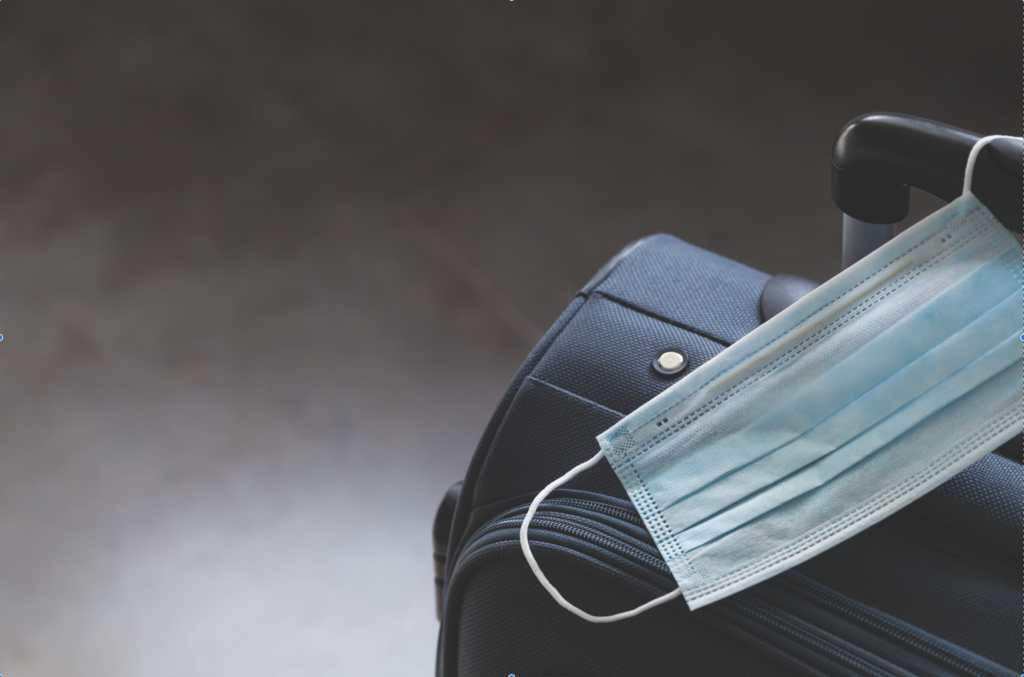The job of trip planning and supporting flights has become significantly more complex because of the Covid-19 pandemic.
While much of aviation ground to a halt in the early days of the Covid-19 pandemic, business aviation companies continued to fly people and cargo all over the world. As well as a testament to the bravery and commitment of front-line staff, the continuation of services then and now during the pandemic would not be possible were it not for the people in the back rooms planning and supporting trips.
Covid-19 has significantly impacted tasks such as planning flights, organizing permits and liaising with customers. Aviation services group Air Partner worked closely with the UK and Irish Governments to repatriate citizens when the pandemic started. The company evacuated more than 300 UK and EU citizens from Wuhan, China during February 2020, and 32 Irish and UK nationals from quarantined cruise ship the Diamond Princess in Japan during early March.
The company then quickly launched its Air Partner Protect program on March 10. Knowledge from the government-contracted evacuations, the running of repatriation flights for private individuals and flights to transport PPE out of China during the outbreak informed the setup of Air Partner Protect. Kevin MacNaughton, managing director of charter for the UK, Europe and Asia at Air Partner says, “We realized early on how important the virus was going to be. Our relationship with governments and private individuals meant they trusted us to operate these flights safely. We enlisted our security company Redline to implement the health and safety measures, temperature checks and similar measures for those flights.”
Air Partner acquired Redline in December last year for £10 million (US$13 million). The company employs 100 people and provides training courses, security management systems, consultancy services, quality assurance and compliance management services to the aviation sector. MacNaughton says, “One of the advantages of having Redline is that they understand the regulations and changes needed. “We recently worked with an operator called Jet Edge in the USA to get their fleet operational during the pandemic. Redline wrote all their standard operating procedures. We have the knowledge inhouse to do that now.”
Nevertheless, the tangible impact of Covid-19 on flight planning and support at Air Partner has been a significant increase in workload. MacNaughton says, “We have a 24/7 operations teams and account managers that have been with us for more than 20 years. Covid-19 makes their life very challenging. They have to put in a lot more hours to cover every possible scenario from the beginning to the end of the journey.
“There is a lot more paperwork, travel restrictions and quarantine rules to deal with to go into each country. They have to adapt fast and stay up to speed with the changes.”
“It’s much more work organizing things like visas and permits — we now spend much longer communicating with our customers and partners,” adds MacNaughton.
Keep communicating

Managers at Avplan Trip Support have also found that almost constant communication is needed to deal with the difficulties caused by Covid-19. Heath Beasley, Avplan Trip Support’s manager of operations says, “We diligently keep our customers informed about any changes in regulations, or even the possibility of a change.
“The overall situation is very fluid with regulations changing seemingly every day. The regulations we’ll see two weeks from now could be entirely different than the present situation — which could either make for a simpler flight plan or tighter restrictions. Our teams use online resources along with local contacts to keep up with the changes.
“Principal passengers have an enormous load on their shoulders as they’re caring for their companies as a whole. They need to accurately know what the situation is going to be upon arrival. By providing thorough flight planning services like this, we can make it far easier and as cost effective as possible for operators to start flying again.”
Beasley believes that the most important consideration when planning trips at the moment is knowing the travel restrictions and what the process will be upon arrival. He says, “For instance, when the operator lands, will proof of a negative Covid-19 test be required? Will all passengers have to quarantine for a set amount of days? The process is typically different for crews — so what’s their requirement?”
Universal Aviation has also experienced a significant workload increase when planning flights since the start of the Covid-19 pandemic, with routine missions taking around double the time to facilitate. The company has been proactive at communicating the impacts of flight restrictions at no charge to the industry via its blog, and sees its primary role as helping to reduce operating risk and the stress of its clients with accurate information. Like AvPlan, Universal has a global network of resources it can leverage to obtain and share information quickly. Its trip support staff can validate that passengers and crew are allowed to land and enter a country based on nationality, travel history, health screening and testing requirements and results, as well as by economic interests in a country.
Robert Moya, senior operations manager, trip support services at Universal Aviation says, “Things aren’t the same as they used to be. Even domestic flights have additional challenges, so don’t try to do it alone. Regulations can change by the hour. We have seen flights turned around and passengers denied entry because they did not follow the required restrictions.
“Many countries are technically closed, but there are exceptions for legitimate business purposes. Companies like Universal can help explain your options and work with the authorities such as customs on your behalf.”
This includes for example the development of business sponsor letters, which can enable access to closed countries. “Operators can do this on their own, but service providers do it daily and know what works,” says Moya. “We spend a lot of time pressure testing various scenarios for trip feasibility, which often requires multiple
back-and-forth exchanges with authorities.
“It’s also vital to keep a detailed travel log. Most countries want to know where you’ve been the last 14 days. Almost every country requires some form of negative Covid-19 test for entry. Make sure your negative test has all your relevant information on it.”
Confidence in standards
One of the most interesting trends of the pandemic has been an increase in the amount of interest from new customers in business aviation. This is partly thanks to the controlled environment of private aviation compared to commercial aviation. It is also because of the high standards of hygiene that operators and FBOs can provide, which reassure people.
MacNaughton says, “Our inbound enquiries have been up by 300% this year. People are valuing safety more than ever before. If you reduce your touchpoints and provide strong hygiene standards, private aviation offers more safety.
“In the mid- to long-term I see safety and hygiene being critical to our business. It’s here to stay. People are so much more aware of what the pandemic has done to
the world.”
Key to inspiring this confidence in air travel is that the standards of hygiene and safety are met. To ensure this, planners can request proof such as a certificate when hiring cleaning and disinfection services. Otherwise, it’s a matter of asking detailed questions. Beasley says, “When using service providers like FBOs or ground handlers, ask them to provide their cleaning protocols, specific cleaning detergents and their frequency of cleaning.
“Operators also need to understand what their passengers may require with regard to transportation protocols and if other services are needed within the facilities, including restrooms, offices, and ensure those spaces are being properly and safely cared for.
“Business aviation is in a unique position given the health crisis — it can attract new users, who otherwise may not have considered private flying, due to the transportation’s safety and efficiency as compared to commercial travel. By being transparent about procedures and safety measures, the industry can inspire confidence in business aviation as a viable, effective solution.”
A strong relationship with partners, such as FBOs, ground support providers and ground transport providers is also essential for planners to guarantee standards believes MacNaughton. “We know we can trust our partners to work to the required standards for jobs like deep cleaning of the aircraft,” he says. “Our staff go through the trip from start to finish, ensuring our partners have the right level of experience. We apply our knowledge of the airports and FBOs, facilitating direct transfers to ground transport where possible if requested.
“The journey has to be controlled end-to-end because our aim is always to make sure we provide a seamless journey. That is now more difficult and requires a lot more communication and work. We have to deal with changes fast if a quarantine or a restriction is introduced – rearranging airports, ground service provisions and dealing with extra protocols and paperwork.”
Restrictions and relaxations

There is little doubt from trip planning and flight support companies and departments that the implementation and removal of travel restrictions and quarantine measures by governments has become a new driver of flight activity and enquiries in business aviation. The Air Charter Association (ACA) has 260 members around the world and works to represent its member’s views to governments and regulators. Dave Edwards, CEO of the ACA says, “There are around ten times the amount of phone calls, but only half as many bookings.
“It’s great for the longer term that the visibility of the industry is increasing, but it doesn’t solve the short-term issues. Costs have gone up while income has gone down.
“There is a lack of clarity on travel restrictions, which are done without much consultation with the travel industry. Restrictions and guidelines are different in every country – more joined-up action at least at a regional level would be good.”
Governments could also for example, provide tax relief for aviation assets.
Edwards believes a fundamental problem is that airlines continue to get more attention about their issues than business aviation. This means business aviation has to be consistent with its messaging. “Lobbying is not a quick win – getting support takes time,” he says. “Operators broadly have the same view as the airlines. They are working to a common set of safety standards. The safety of passengers is always paramount.
“We are an industry of problem solvers with a strong entrepreneurial spirit. When airports saw movements increase, FBOs and MROs provided staff. The response of our members to the pandemic has been admirable – from FBOs introducing touchless travel through terminals to operators introducing health checks for pilots and crew.
“As much as the media likes to portray as exclusive transport for footballers and rock stars, the reality is we are a routine industry, mostly transporting business people. This period is a great opportunity to show people what we really do – provide air travel to places not otherwise connected by aviation,” adds Edwards.
Dealing with increases

If an operator finds that Covid-19 is causing an increase in workload that is proving difficult to handle, Beasley suggests that outsourcing can provide a solution: “Having a group of people to call that are already well versed in the current regulations makes it tremendously easier to focus on passenger requests and the safety of the flight,” he says.
“Unless an operation plans to shoulder all of that burden during this volatile situation, having an international trip support provider in its back pocket will make an operator’s tasks more streamlined and efficient.
“I’d recommend that an operator outsource handling and permits, and fuel arrangements. Knowing that an experienced company has taken care of all the ground arrangements and permits when you land provides mental space for more important flight-safety related tasks.”
Moya agrees, “Trying to plan missions solo right now adds additional layers of risk because of all of the new requirements and restrictions. A provider like Universal has the resources and local experts that harvest the latest and most accurate information about the necessary health requirements and obligations for departures and arrivals.”
The outcome of dealing with these challenges can be positive. MacNaughton says, “Covid-19 is challenging the way we work, but we have the knowledge and people to deal with it. Customers are more appreciative that we have made the journey happen and gone the extra mile to do so.”





